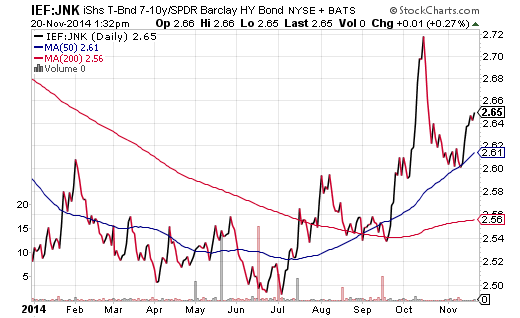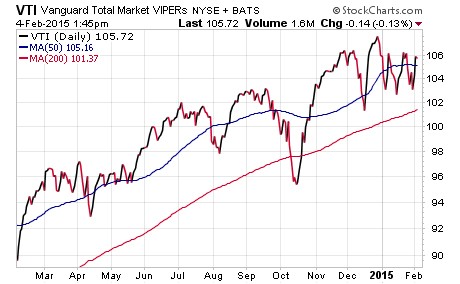Should You Buy ETF or Stock
Post on: 23 Июль, 2015 No Comment

After you are done with research on an attractive sector thoroughly, you may feel like having some stocks and an ETF or Exchange Trading Funds that matches your criteria. The decision lies in your hand whether to go for ETF’s or stock. Investors face this question on a daily basis. Some of them are of the opinion that buying an ETF will keep you stuck in the same place with average returns. This might not be the case and totally depends on the sector’s characteristics.
Like all other investment decisions, this one is also tough to make as investors are always on the lookout to reduce their risks. It is the wish of everyone to beat the market with a good return. The usual method of mitigating risks is by reducing investment volatility. There are some investors who in order to prevent huge losses give up a bit of upside potential. Industry group diversification offered by an investment reduces the portfolio volatility that the investor exposed to. ETF diversification works in this way to your favor.
The investment’s ability to beat its benchmark is known as alpha. The stability of an alpha means you’ll be getting high return from the investment you have made. Although the belief is to own stocks to beat the market rather than ETF’s, the belief is not correct always. Alpha can be achieved by being on the right sector.
Buying a stock?
Situations or industries where wide return dispersions happen, or instances with other fundamental analysis forms and ratios could be of use for spot mispricing, offers an opportunity for stock-pickers to exceed. The legal insight that you have may offer you with a clear picture of the performance of a company, based on your experience and research. It is this insight that provides you with an advantage which can be put to use to reduce the risk and help in achieving a good return. Value added investment opportunities are created by good research and in turn rewards the investor of the stock.
Stock pricing in a retail industry might come with better opportunities instead of buying ETF’s covering the sector. The returns of the company are widely dispersed in the sector which depends on the particular products carried by them and creates good opportunity for the perceptive stock picker. Like for example, you may notice that your son and his friends always prefer to buy products from a particular retailer. When you look in to the matter you might observe that the company has hired a team of management for the products and upgraded the stores. The products that were rolled out caught the attention of your son’s age group. This has not been noticed by the market. This is the perspective that is required which will give you the edge to go for stocks rather than buying retail ETF.
The insight of a company brought about by sociological or legal perspective may provide you with investment opportunities that are not captured immediately in market prices. If the environment of a particular sector poses return dispersion, higher returns can be expected through investments in single stock rather than diversified approach.
Buying an ETF?
Sectors having returns of narrow dispersion does not bring with it any advantages for the stock pickers trying to generate returns for beating the market. In these types of sectors the performance of most of the companies are almost similar. The overall performance for these types of sectors is similar to any one stock’s performance. The consumer staples and utilities fall under this category. The decision of the investors is vital in this case for the allocation of the portfolios to the overall sector rather than picking up particular stocks. Since returns from consumer staples and utilities offer narrow dispersion; one cannot expect to get a good return for the risk that is found in individually owned securities by picking up a stock. Since ETF’s need to pass through dividends paid by stocks in the sector, benefit is received by the investors as well.

If the performance driver of a company poses difficulty in understanding, ETF might be considered by you. These companies have technology that is hard to evaluate or processes letting them underperform. It might be the case that the performance of the company is dependant on the sale and development of some unproven technology. Return dispersion is huge and chances are low on finding the winner. A perfect example is the biotechnology industry where the growth and development of the companies depends on the sale of a newly released drug. If the requirements are not met by the drug in the trails performed or is unapproved by the FDA, the future of the company remains in the dark. But if FDA approves it then investors can expect good returns.
While deciding whether to go for ETF’s or select stocks importance should be paid towards risk and the achievable potential return. When there is wide return dispersion from the mean stock picking is more advantageous than ETF. ETF on the other side is advantageous when there is narrow dispersion from the stocks return and if you can gain advantage through knowledge and understanding of the company.
ADVERTISEMENTS
3A%2F%2F1.gravatar.com%2Favatar%2Fad516503a11cd5ca435acc9bb6523536%3Fs%3D100&r=G /%
Abhishek Gupta is working as a Fund Administrator (Hedge Funds) with the HSBC Bank (Kolkata) for over a year. He pursued Bachelors in Commerce from Calcutta University and completed postgraduate as MBA (Finance) from Calcutta Business School.














